Archive
Court approves Vascepa® for off-label use despite pushback from FDA
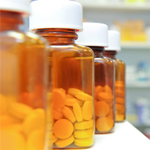 On Friday August 7th, the Southern District Court of New York permitted Amarin Pharma to promote certain off-label uses of its 2012 FDA-approved drug, Vascepa®. The FDA has made it known that promoting uses of drugs that are not on FDA-approved labeling violates the Food, Drug, and Cosmetic Act (FDCA). This means that a manufacturer can promote its drug for its approved intended use, but a true and non-misleading promotion of an off-label use is considered misbranding. Doing so is prohibited conduct, and could result in penalties and criminal prosecution. Read more…
On Friday August 7th, the Southern District Court of New York permitted Amarin Pharma to promote certain off-label uses of its 2012 FDA-approved drug, Vascepa®. The FDA has made it known that promoting uses of drugs that are not on FDA-approved labeling violates the Food, Drug, and Cosmetic Act (FDCA). This means that a manufacturer can promote its drug for its approved intended use, but a true and non-misleading promotion of an off-label use is considered misbranding. Doing so is prohibited conduct, and could result in penalties and criminal prosecution. Read more…
The inherent risk surrounding nutraceuticals
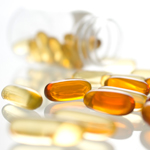 Nutraceuticals, a $30 billion industry in the United States, come in the form of capsules, bars, drinks, lotions, pills, and powders. The medical and therapeutic benefits they claim to offer vary from renewed sexual drive, to enhanced athletic performance, to fewer wrinkles. Many are nutritional supplements which, according to JAMA Internal Medicine, were taken by 45 percent of people to “improve” and 33 percent of people to “maintain” overall health. However, only 23 percent of products were recommended by a healthcare provider.
Nutraceuticals, a $30 billion industry in the United States, come in the form of capsules, bars, drinks, lotions, pills, and powders. The medical and therapeutic benefits they claim to offer vary from renewed sexual drive, to enhanced athletic performance, to fewer wrinkles. Many are nutritional supplements which, according to JAMA Internal Medicine, were taken by 45 percent of people to “improve” and 33 percent of people to “maintain” overall health. However, only 23 percent of products were recommended by a healthcare provider.
When taking dietary supplements, bear in mind that they are not required to be tested or registered with the United States Food and Drug Administration (FDA). The FDA’s job in oversight is primarily registering facilities, confirming those facilities are operating within proper manufacturing practices, and investigating products after they hit the shelves. Nutraceutical companies may assert that their product has been Read more…
FDA delays generic drug label warning update
 The U.S. Food and Drug Administration’s final rule on generic drug label warning regulations won’t be published until late next year, according to last month’s announcement from the federal agency. Since late 2013, FDA officials have collected feedback on a proposal to grant generic drug manufacturers permission to update product labels independently with new safety information without having to wait until the brand-name counterpart drug makes similar changes. Due to intense interest and a great deal of public input from various industry groups, the FDA pushed the decision back from this month until September 30th, 2015. The proposal has ignited heavy debate between plaintiff’s lawyers and the pharmaceutical industry, since the decision would overturn the U.S. Supreme Court’s 2011 ruling in Pilva v. Mensing, which limited the liability of generic manufacturers. Under the Mensing decision, generic drug labels are required to match brand name products, which shields generic makers from failure-to-warn suits since they have little control over what safety information is provided to patients. Read more…
The U.S. Food and Drug Administration’s final rule on generic drug label warning regulations won’t be published until late next year, according to last month’s announcement from the federal agency. Since late 2013, FDA officials have collected feedback on a proposal to grant generic drug manufacturers permission to update product labels independently with new safety information without having to wait until the brand-name counterpart drug makes similar changes. Due to intense interest and a great deal of public input from various industry groups, the FDA pushed the decision back from this month until September 30th, 2015. The proposal has ignited heavy debate between plaintiff’s lawyers and the pharmaceutical industry, since the decision would overturn the U.S. Supreme Court’s 2011 ruling in Pilva v. Mensing, which limited the liability of generic manufacturers. Under the Mensing decision, generic drug labels are required to match brand name products, which shields generic makers from failure-to-warn suits since they have little control over what safety information is provided to patients. Read more…
FDA suggests social media standards for pharma and med device companies
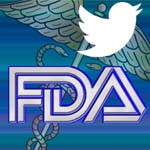 The FDA issued a pair of guidelines on Tuesday for pharmaceutical and medical device companies regarding the use of social media and internet communication for medical products. While other industries, including financial services , retail and real estate have immersed themselves in using social media as a marketing tool, pharmaceutical companies have been slower to embrace the trend, due to strict regulatory and privacy laws. But as technology continues to drive consumer and patient behavior – a 2013 study found that one in four interactions with doctors, healthcare professionals and patients in the U.S. is digital – the FDA recognizes a need to adapt to these changes and in turn, establish industry best practices for social media use. The long-awaited guidance aims to provide consumers with more accurate, accessible information online, and proposes guidelines for pharmaceutical and medical device companies about how to correct misinformation posted online by others. Read more…
The FDA issued a pair of guidelines on Tuesday for pharmaceutical and medical device companies regarding the use of social media and internet communication for medical products. While other industries, including financial services , retail and real estate have immersed themselves in using social media as a marketing tool, pharmaceutical companies have been slower to embrace the trend, due to strict regulatory and privacy laws. But as technology continues to drive consumer and patient behavior – a 2013 study found that one in four interactions with doctors, healthcare professionals and patients in the U.S. is digital – the FDA recognizes a need to adapt to these changes and in turn, establish industry best practices for social media use. The long-awaited guidance aims to provide consumers with more accurate, accessible information online, and proposes guidelines for pharmaceutical and medical device companies about how to correct misinformation posted online by others. Read more…
FDA officials warn drug makers: comply or face sanctions
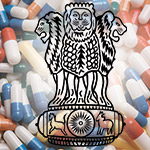 Having already faced serious legal threats from regulatory agencies last year, India’s pharmaceutical industry is now under additional scrutiny from the U.S. Food and Drug Administration officials are intensifying investigations into the country’s drug facilities. In February, this FDA Commissioner Margaret Hamburg met with Indian officials about the safety of Indian drug plants, following multiple reports that the country has sold fake pharmaceutical drugs and produced falsified drug test results.
Having already faced serious legal threats from regulatory agencies last year, India’s pharmaceutical industry is now under additional scrutiny from the U.S. Food and Drug Administration officials are intensifying investigations into the country’s drug facilities. In February, this FDA Commissioner Margaret Hamburg met with Indian officials about the safety of Indian drug plants, following multiple reports that the country has sold fake pharmaceutical drugs and produced falsified drug test results.
India is currently the second largest exporter of over-the-counter prescription drugs to the U.S. and supplies 40 percent of generic prescription drugs to American consumers. The country exports about $15 billion in drug products each year and while many Indian manufacturing facilities are of top quality, others are in poor condition. The World Read more…
New trial regulations for medical device makers in South Korea
 The Ministry of Food and Drug Safety (MFDS) will implement new clinical trial regulations for certain high risk medical devices looking to obtain trial approval. The agency announced last October that beginning in 2014, 68 devices (those that are either transplanted or absorbed into the human body) must submit trial data as part of technical documentation before receiving approval to conduct trials.
The Ministry of Food and Drug Safety (MFDS) will implement new clinical trial regulations for certain high risk medical devices looking to obtain trial approval. The agency announced last October that beginning in 2014, 68 devices (those that are either transplanted or absorbed into the human body) must submit trial data as part of technical documentation before receiving approval to conduct trials.
The MFDS, formally known as the Korea Food and Drug Administration, is a South Korean government agency that oversees the safety and efficiency of foods, pharmaceuticals, medical devices and cosmetics and supports the development of the food and pharma industries. Read more…
FDA’s new cyber security lab tests for “fuzzing” to promote medical device safety
 The FDA will reportedly launch a new cyber security laboratory to address security concerns for medical devices. The administration says that it is in the midst of developing new product regulations for medical device manufacturers to guard against hacking attempts. The labs will be used to test medical devices for vulnerabilities to data “bugs” that cause software to crash and disable system functions. The process, called “fuzzing” subjects a piece of software in the device to an influx of unintended input data requests in order to test how the device responds. The results help determine any vulnerabilities and allow manufacturers to fix them before the product is released, thus making products safer for patients and less likely to break down.
The FDA will reportedly launch a new cyber security laboratory to address security concerns for medical devices. The administration says that it is in the midst of developing new product regulations for medical device manufacturers to guard against hacking attempts. The labs will be used to test medical devices for vulnerabilities to data “bugs” that cause software to crash and disable system functions. The process, called “fuzzing” subjects a piece of software in the device to an influx of unintended input data requests in order to test how the device responds. The results help determine any vulnerabilities and allow manufacturers to fix them before the product is released, thus making products safer for patients and less likely to break down.
The announcement comes in response to several warnings from the National Institute of Standards and Technology (NIST), security researchers and other government agencies about the need Read more…
Activists pressure FDA for more generic drug regulation
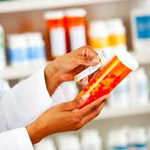 Last month the U.S. Supreme Court set aside a 21 million jury verdict for a woman who was injured as a result of an adverse reaction to a generic drug, similar to common pain medication like ibuprofen. In Mutual Pharmaceutical Co. Inc. v. Bartlett, the court ruled that the consumer’s design defect claim against the company was pre-empted, since generic drugs must be designed the same way as their brand-name counterparts. The decision, the latest in a string of drug-regulatory cases helps to shield generic drug makers from personal injury litigation claims and signals another victory for the industry.
Last month the U.S. Supreme Court set aside a 21 million jury verdict for a woman who was injured as a result of an adverse reaction to a generic drug, similar to common pain medication like ibuprofen. In Mutual Pharmaceutical Co. Inc. v. Bartlett, the court ruled that the consumer’s design defect claim against the company was pre-empted, since generic drugs must be designed the same way as their brand-name counterparts. The decision, the latest in a string of drug-regulatory cases helps to shield generic drug makers from personal injury litigation claims and signals another victory for the industry.
Two years ago, the court ruled in Pilva Inc. v. Mensing that generic drug manufacturers could not be held liable for failure to warn claims. In response, several Democratic Read more…
FDA asks medical device developers for feedback on new draft guidance
 “Recall” or “product enhancement” – the distinction between the two terms can be tricky, especially for medical device manufacturers aiming to comply with current industry codes and regulations. In the case of a recall, developers face serious financial and reputational damage; product enhancements, on the other hand, rarely cause bad publicity and tend to only involve improvements made to a product.
“Recall” or “product enhancement” – the distinction between the two terms can be tricky, especially for medical device manufacturers aiming to comply with current industry codes and regulations. In the case of a recall, developers face serious financial and reputational damage; product enhancements, on the other hand, rarely cause bad publicity and tend to only involve improvements made to a product.
The U.S. Food and Drug Administration (FDA) recently issued draft guidance to help clarify when a change to a product constitutes a recall or a product enhancement, and the difference between the two. The FDA has asked companies to review the draft guidance and submit feedback by May 23, 2013. Read more…
New FDA ruling on manufacturing requirements could lead to more warnings
 The FDA issued a final ruling last month on Current Good Manufacturing Practice (CGMP) requirements for products that combine devices, drugs and/or biologics. The ruling will go into effect July 27, 2013, and clarifies CGMP requirements for products that are a mixture of any of these products as packaged together or as a single-entity combination. While in the past, the guidelines for some combination products (such as those that are manufactured and marketed separately) were fairly straightforward, the rules for “single-entity” and co-packaged combination products had been less clear.
The FDA issued a final ruling last month on Current Good Manufacturing Practice (CGMP) requirements for products that combine devices, drugs and/or biologics. The ruling will go into effect July 27, 2013, and clarifies CGMP requirements for products that are a mixture of any of these products as packaged together or as a single-entity combination. While in the past, the guidelines for some combination products (such as those that are manufactured and marketed separately) were fairly straightforward, the rules for “single-entity” and co-packaged combination products had been less clear.
While it is mandatory for all pharmaceutical companies to comply with CGMP regulations, they are not meant to be prescriptive instructions, since the regulations apply to so many types of drugs and devices. Instead, the rules are meant to offer a general framework which all Read more…
